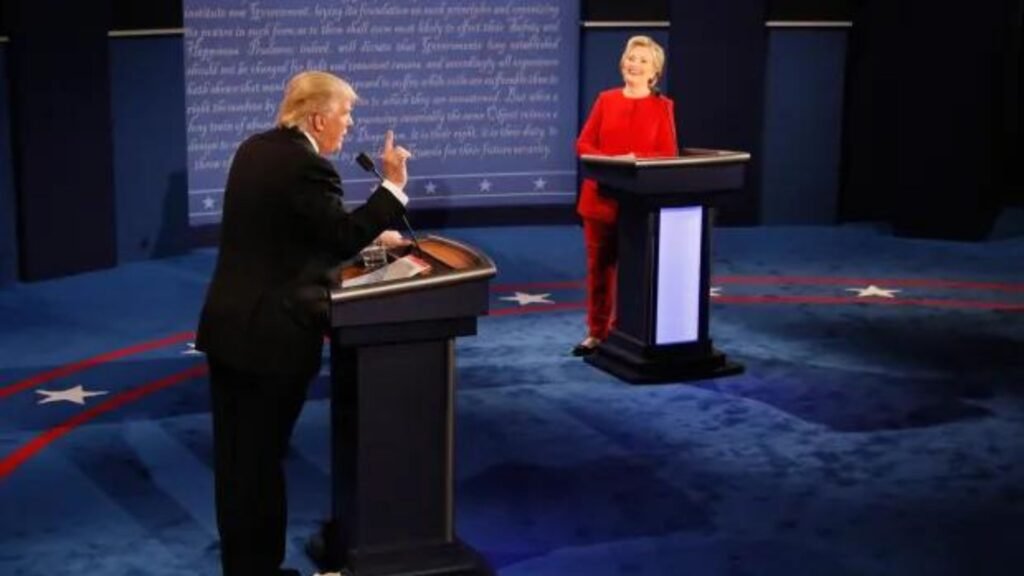Analyzing political debates is an essential skill for anyone interested in understanding political discourse and making informed decisions. Political debates offer insights into candidates’ policies, personalities, and how they handle scrutiny. To get the most out of these debates, it’s crucial to approach them with a critical eye. Here’s a detailed guide to help you effectively analyze political debates.
Understand the Debate Format
Before diving into analyzing political debates, familiarize yourself with the debate format. Most debates follow a structured format with opening statements, question segments, and closing remarks. Knowing the format helps you follow the flow of the discussion and understand the context in which candidates respond. Each segment of the debate offers different insights into the candidates’ skills and strategies.

Focus on Key Issues
When analyzing political debates, pay attention to how candidates address key issues. Candidates often focus on major topics such as the economy, healthcare, and foreign policy. Evaluate their responses based on clarity, depth, and feasibility. Effective responses should provide specific details about policies and plans rather than vague promises.
Assess Communication Skills
Strong communication skills are vital in political debates. As you analyze, note how candidates articulate their positions. Clear, concise, and confident communication often reflects preparedness and competence. Observe how they handle interruptions, questions, and counterpoints. Effective debaters remain composed and address issues directly without resorting to evasive tactics.
Examine Body Language
Body language can reveal a lot about a candidate’s confidence and honesty. While analyzing political debates, observe candidates’ non-verbal cues such as eye contact, posture, and gestures. Nervous habits or defensive gestures might indicate discomfort or lack of confidence, whereas open and steady body language can suggest honesty and assertiveness.
Evaluate Responses to Questions
Debate moderators typically ask candidates a range of questions, including those that challenge their positions. In analyzing political debates, focus on how candidates respond to tough questions. Do they provide well-reasoned answers or avoid the question altogether? Effective candidates address questions directly and offer substantial evidence to support their claims.
Compare Policy Proposals
One of the key aspects of analyzing political debates is comparing the policy proposals of each candidate. Look for differences in their approaches to solving problems. Consider which proposals are more practical and align with your values. Pay attention to how candidates justify their policies and the potential impacts they discuss.
Note Interaction with Opponents
Watch how candidates interact with their opponents. The dynamics between them can reveal their ability to handle criticism and engage in constructive dialogue. Analyze whether they use attacks to undermine their opponents or focus on presenting their own policies and strengths. Constructive interactions often lead to more meaningful and respectful debates.
Assess the Use of Facts and Data
Reliable information and evidence are crucial for informed debate. As you’re analyzing political debates, check the accuracy of the facts and data presented by candidates. Misinformation or exaggeration can undermine a candidate’s credibility. Cross-reference the claims made during the debate with credible sources to ensure they are accurate.
Look for Emotional Appeal
Candidates often use emotional appeals to connect with voters. While analyzing political debates, observe when and how candidates use emotional language. Emotional appeals can be powerful but should be balanced with rational arguments. Evaluate whether the emotional appeal supports their policies or distracts from substantive issues.
Reflect on Overall Impact
After the debate, reflect on the overall impact it had on you. Consider how the candidates’ performances might influence your views. Analyzing political debates involves assessing not just what was said but how it was said and how it affects your perception of the candidates.
Conclusion
In conclusion, analyzing political debates requires a keen eye for detail and a critical approach. By understanding the debate format, focusing on key issues, assessing communication skills, and examining other factors, you can gain valuable insights into each candidate’s suitability for office. This comprehensive approach helps you make more informed decisions in the political process.